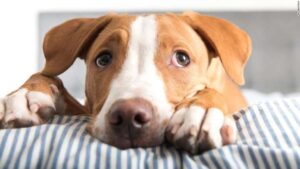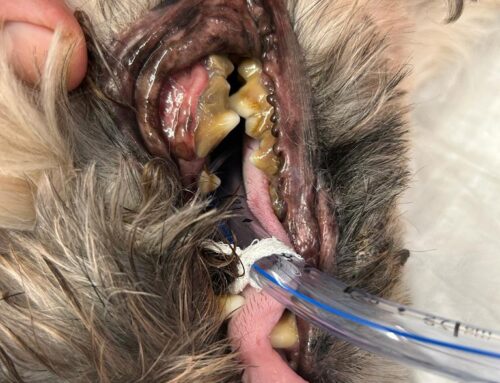Diarrhoea

Diarrhoea is very common in dogs and also seen sometimes in cats. There are numerous different causes, depending on species, and treatment depends on the individual cause in each animal.
Food related
Diarrhoea is often food-related, particular in dogs. This may be due to scavenging food they shouldn’t have access to, particularly foods high in fat or sugars, which are too rich for their digestive system. A sudden change of diet can also upset the normal bacteria which live in the gut and cause diarrhoea. In rarer cases, dogs and cats can both suffer from food allergies, where normal food is very irritant on the gut, sometimes causing vomiting as well as diarrhoea and can even come hand-in-hand with skin problems. Diagnosis of food allergies is difficult as it requires feeding a novel hypoallergenic diet for at least 4 – 6 weeks with no tit-bits or treats that may possibly set the allergies off.
Infections
Gut infections can either be viral, bacterial or caused by parasites. Parasites, such as worms, are the most common, especially in younger puppies and kittens who may have large burdens passed on from mum. Other parasites include giardia, again very common in young animals. These infections can often be simply treated with a wormer or anti-parasite medication. Viral causes of diarrhoea can be much more serious – the well-known parvovirus in dogs and feline infectious enteritis in cats are both caused by viruses. They can cause severe damage to the lining of the gut and, being viral, have no response to antibiotics so we are often left with trying to support the animal with fluids and gastroprotectants while their own immune system kicks in. Bacterial gut infections include salmonella and campylobacter – these are not often seen in dogs and cats but maybe a higher risk if your pet is raw fed. These are one of the few causes of diarrhoea that antibiotics can be effective against.
Inflammatory
As a whole diarrhoea is often caused by inflammation of the intestines, especially the large intestine which is responsible for absorbing water – if this isn’t working properly, we see increased water in the faeces, which results in diarrhoea. Most inflammation has a cause already described above – sudden diet change, parasites or infection – but sometimes it may be a mistaken reaction of the body, without any cause being present. This is inflammatory bowel disease, another type of allergic reaction. In these cases, we often have to resort to immune suppression, such as steroids, to stop the body “overreacting” to normal stimulus.
Internal organ dysfunction
As well as the intestines, other organs play a part in normal digestion by providing necessary enzymes or bile acids. The pancreas produces enzymes for breaking down starches and fats, so if our pet has a particularly fatty food, the pancreas goes into overdrive and can become very irritated, which we call pancreatitis. Not only do we see diarrhoea, but we also tend to have a painful abdomen and vomiting too. The pancreas may also fail to work properly, known as exocrine pancreatic insufficiency (EPI), so producing insufficient amounts of an enzyme for proper digestion. The liver also has a key role in digestion, as it produces bile, so liver problems may show themselves as diarrhoea cases. Kidney disease can sometimes present with diarrhoea too in older animals.
Do I need to see the vet?
Often diarrhoea will be self-limiting – that is, it resolves of its own accord or with a bland diet, especially if it is food-related. However, if diarrhoea goes on longer than a few days, we would always recommend coming to see the vet to check they are not becoming dehydrated. We also recommend bringing your pet in if they are lethargic or off colour in themselves, or if blood is present in the diarrhoea, especially if it is dark, digested blood.
How is diarrhoea treated?
Simple food-related diarrhoea may only need a few days of a bland diet and some probiotics to help replenish normal bacteria within the guts in order to resolve. If a specific cause is isolated, the relevant treatment will be given, such as wormers for parasites or steroids for inflammatory bowel disease. If your pet is becoming dehydrated, the vet will likely suggest an intravenous drip to replace the lost fluids straight back into the bloodstream. Finally, a blood test may be recommended if the vet suspects we may have an underlying disease present.
How can I help?
Alongside veterinary treatment, there are a few things you can do at home to help your pet recover from diarrhoea. Feeding bland food, little and often, is a good idea, as well as making sure plenty of fresh water is available. Try to avoid feeding them fatty titbits of human food, as these can trigger nasty bouts, and make sure any change in food is done gradually. If you have any questions about feeding or tummy upsets, please give us a call and talk to a member of the team.




